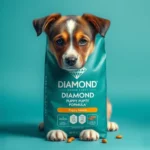
Introduction
When it comes to dog nutrition, the significance of providing a balanced diet cannot be overstated, particularly for senior dogs. As dogs age, their nutritional needs evolve, making it essential for pet owners to be aware of the best options available.
What is Grain-Free Dog Food?
Grain-free dog food is formulated without traditional grains such as wheat, corn, or soy. Instead, it utilizes alternative sources of carbohydrates, such as sweet potatoes or legumes. This type of diet has gained popularity, especially among dogs that may have sensitivities or allergies to grains.
Why Focus on Senior Dogs?
Senior dogs face unique nutritional challenges. As they age, their metabolism slows, and they may begin to experience various health issues such as arthritis, obesity, or kidney disease. Tailoring their diet to meet these specific needs is crucial for maintaining their health and overall well-being.
Understanding the Nutritional Needs of Senior Dogs
Age-Related Changes in Dogs
As dogs enter their senior years, numerous physiological changes occur. Their metabolism tends to slow down, leading to decreased energy levels. Additionally, digestive health may decline, necessitating a diet that is easier to digest and nutritionally dense.
Essential Nutrients for Senior Dogs
To meet the nutritional requirements of senior dogs, certain key nutrients should be prioritized:
- Proteins: Essential for muscle maintenance, protein helps combat the natural loss of muscle mass that occurs with aging.
- Fats: Healthy fats, such as omega-3 fatty acids, provide energy and support joint health.
- Fiber: Adequate fiber aids digestion and helps maintain a healthy weight.
- Vitamins and Minerals: Nutrients like antioxidants (vitamin E and beta-carotene) support overall health and combat oxidative stress.
Common Health Concerns in Senior Dogs
Senior dogs often face a range of health concerns, including:
- Obesity: Weight management becomes crucial to prevent additional strain on joints and organs.
- Arthritis: Joint pain and stiffness can significantly impact mobility and quality of life.
- Dental Issues: Oral health problems can affect nutrition and overall well-being.
- Kidney Disease: Aging can lead to a decline in kidney function, requiring dietary adjustments to support kidney health.
Benefits of Grain-Free Diets
Why Choose Grain-Free?
For senior dogs, a grain-free diet can offer several advantages, particularly for those with grain sensitivities or allergies. Grain-free options may help alleviate digestive issues and skin problems related to grain consumption.
Key Ingredients in Grain-Free Dog Foods
Grain-free dog foods typically incorporate high-quality carbohydrates and protein sources, such as:
- Alternative Carbohydrates: Sweet potatoes, peas, and lentils provide essential energy without the potential drawbacks of grains.
- High-Quality Protein Sources: Ingredients like chicken, fish, or lamb offer necessary amino acids for muscle maintenance and overall health.
Myths and Misconceptions
There are many myths surrounding grain-free diets. One common misconception is that all dogs need to avoid grains for health reasons. In reality, not all dogs are sensitive to grains, and the decision should be based on individual needs rather than a blanket approach.
Criteria for Selecting the Best Grain-Free Senior Dog Foods
Reading Dog Food Labels
Understanding how to read dog food labels is essential when selecting the best grain-free options for senior dogs. Look for:
- Ingredient Lists: The first few ingredients should include high-quality protein sources.
- Nutritional Analysis: Check for guaranteed analysis to ensure the food meets the nutritional needs of senior dogs.
AAFCO Nutritional Guidelines
The Association of American Feed Control Officials (AAFCO) sets nutritional standards for dog foods. Ensure that any food you consider meets AAFCO guidelines for senior dogs, which indicates the product is formulated to be complete and balanced for their specific life stage.
Evaluating Brand Reputation
Choosing trusted brands with a solid reputation is vital. Look for companies that provide transparency about their sourcing, ingredient quality, and have a history of safety and recalls.
Price vs. Quality
While budget is always a consideration, it’s essential to balance cost with quality. High-quality ingredients and proper formulations often lead to better health outcomes, which can save on vet bills in the long run.
Top Recommended Grain-Free Senior Dog Foods
Comprehensive Reviews of Top Brands
Brand A: [Brand Name Here]
- Ingredients: Features high-quality proteins like chicken and salmon, along with sweet potatoes and peas as primary carbohydrates.
- Benefits: Rich in omega fatty acids and antioxidants, promoting joint health and a shiny coat.
- Customer Reviews: Pet owners report noticeable improvements in energy levels and coat quality.
Brand B: [Brand Name Here]
- Ingredients: Contains lamb as a protein source, with chickpeas and lentils providing fiber and energy.
- Benefits: Formulated with glucosamine and chondroitin to support joint health.
- Customer Reviews: Many customers highlight improved digestion and palatability for picky eaters.
Brand C: [Brand Name Here]
- Ingredients: Includes turkey and fish meal, paired with sweet potatoes and blueberries for antioxidants.
- Benefits: Designed to enhance immune function and support cognitive health.
- Customer Reviews: Users praise the food for its high digestibility and positive effects on older dogs’ health.
Comparison Table
| Brand Name | Primary Protein | Key Carbohydrates | Special Ingredients | Customer Satisfaction |
|---|---|---|---|---|
| Brand A | Chicken, Salmon | Sweet Potatoes, Peas | Omega Fatty Acids | High |
| Brand B | Lamb | Chickpeas, Lentils | Glucosamine | Moderate |
| Brand C | Turkey, Fish | Sweet Potatoes, Blueberries | Antioxidants | High |
Transitioning to a Grain-Free Diet
Signs Your Dog May Need a Dietary Change
If your senior dog exhibits signs of discomfort such as digestive issues, skin problems, or decreased energy, it may be time to consider a grain-free diet. Consulting with your veterinarian can provide personalized recommendations based on your dog’s specific needs.
Steps to Transition Safely
Transitioning to a new diet should be done gradually to prevent digestive upset:
- Start by mixing a small amount of the new grain-free food with the current food.
- Gradually increase the proportion of the new food over a week or two, while decreasing the old food.
- Monitor your dog’s response, and adjust the transition speed based on their tolerance.
Monitoring Your Dog’s Reaction
After transitioning to a grain-free diet, keep an eye on your dog’s health and behavior. Look for improvements in energy levels, coat condition, and overall well-being. If any adverse effects arise, consult your veterinarian for guidance.
Common Questions About Grain-Free Diets for Senior Dogs
Is grain-free better for all senior dogs?
Not all senior dogs require a grain-free diet. Individual dietary needs can vary based on health conditions, sensitivities, and lifestyle. It’s essential to consult with your veterinarian to determine the best diet for your dog.
Can grain-free diets lead to nutritional deficiencies?
A well-balanced grain-free diet can provide all the necessary nutrients for your senior dog. However, it’s crucial to ensure the food is formulated to meet AAFCO guidelines, as imbalanced diets can lead to deficiencies.
How often should I feed my senior dog?
Feeding schedules can vary, but many senior dogs thrive on two meals per day. Adjust feeding frequency based on your dog’s health, size, and activity level, and consult your veterinarian for specific recommendations.
Conclusion
Choosing the right diet is crucial for senior dogs, especially when considering the best grain-free senior dog foods. Understanding their unique nutritional requirements, the benefits of grain-free options, and selecting high-quality products can significantly enhance their quality of life. Always consult your veterinarian for personalized advice tailored to your dog’s health and needs.









